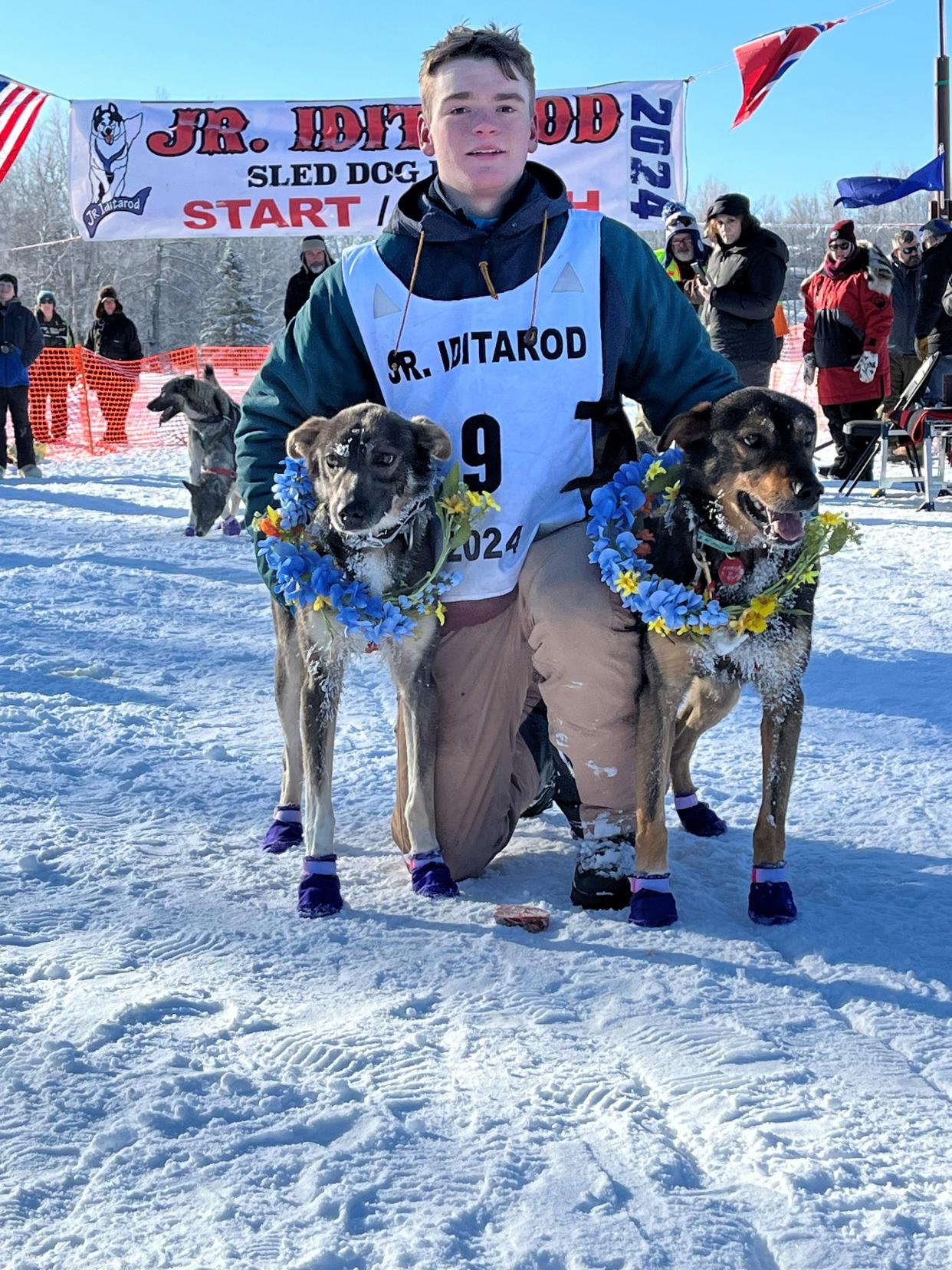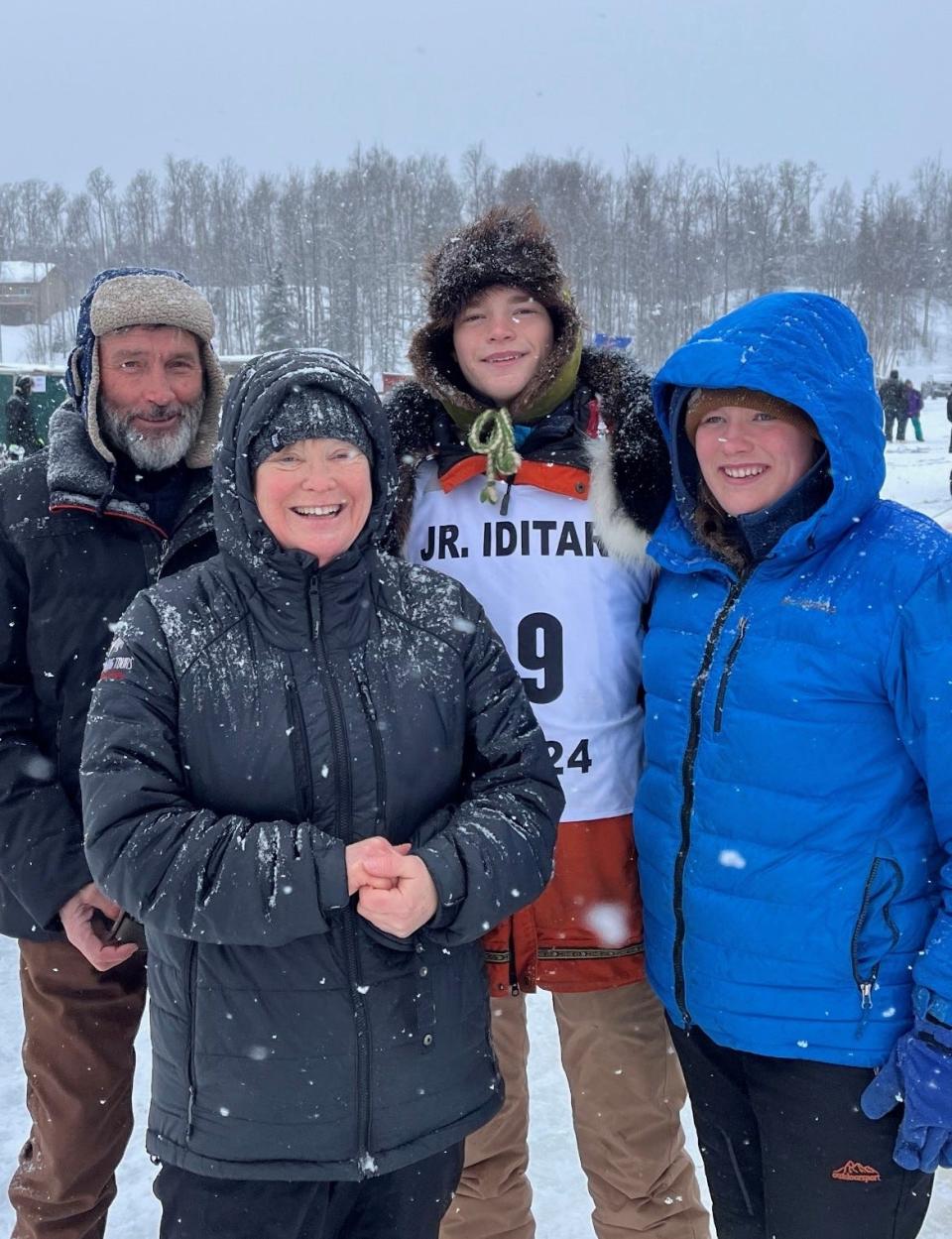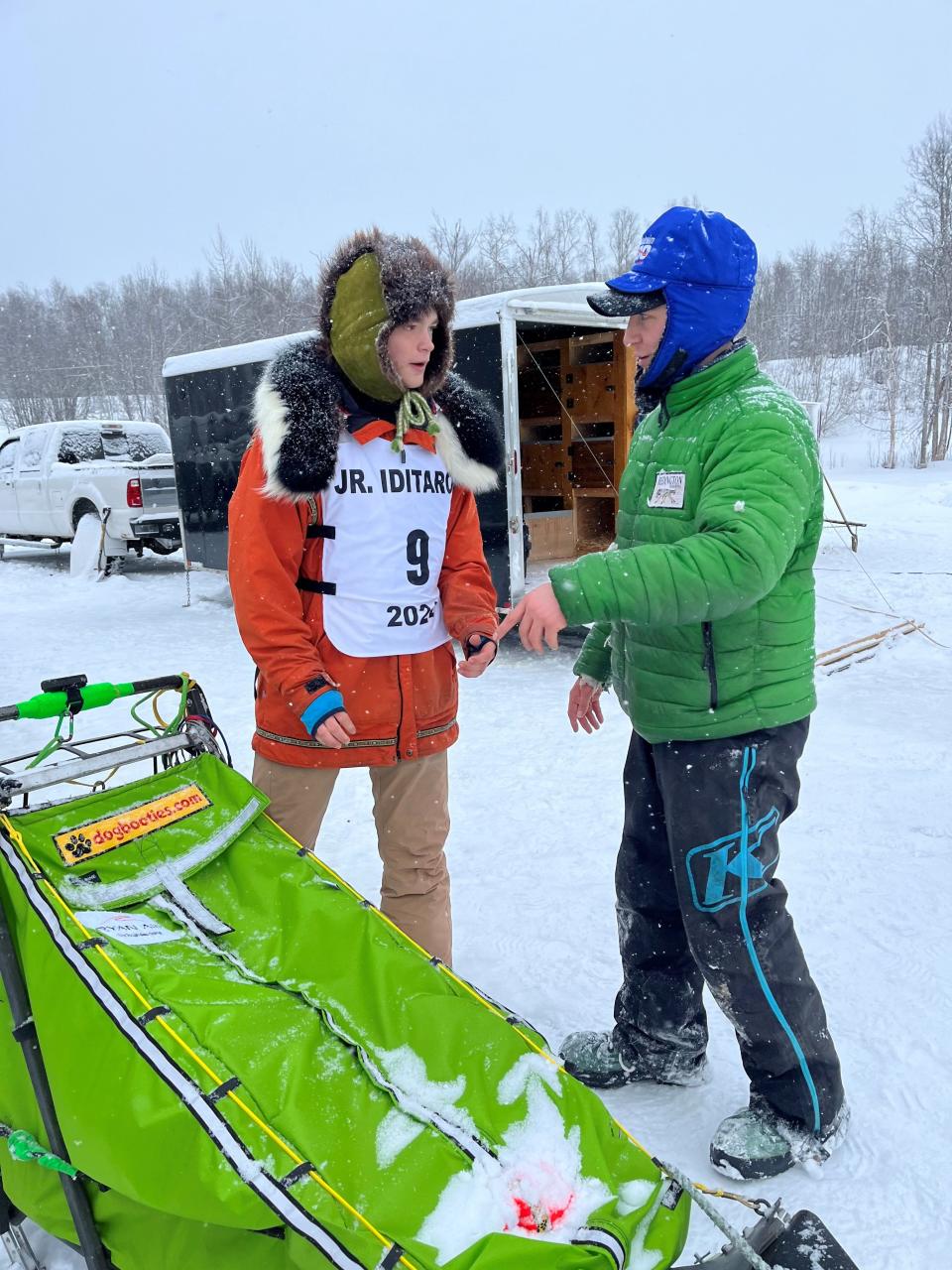Northwoods teen Morgan Martens posts second-place finish in Alaska's Junior Iditarod

A teenager from Northern Wisconsin placed second in Alaska's Junior Iditarod sled dog race race held the last weekend in February, leaving the top-level musher with decidedly bittersweet emotions.
It was the last time 17-year-old Morgan Martens can compete in the high-profile 150-mile, two-day race. He is aging out of the event that's limited to racers ages 14 through 17. The musher, who comes from the small town of Brule, a little more than 30 miles southeast of Superior, has completed the race four times, never finishing lower than third.
He won the event in his first running four years ago, was third the year after that, and posted second a year ago. Both this year and last, he finished runner-up to Emily Robinson, a 16-year-old musher from Nenana, Alaska.
The race is prestigious for young mushers because of its connection to the most famous sled dog race in the world, the Iditarod. The youth-oriented race began almost 50 years ago to help prepare young mushers for the "Big Iditarod," according to a story posted on Iditarod.com.
"I would definitely view it as a successful career," Martens said in a phone interview from Alaska, where he and his family are staying to watch mushers start the race of the "big" Iditarod race.

Finding success, and frustration, at the Junior Iditarod
But he's had his share of frustrations at Junior Iditarod, he said. Especially last year. Toward the end of last year's race, Martens said he felt he was too far behind Robinson, so he stopped running and pushing the sled, essentially coasting to the finish line.
"I had a lot of regret in not finishing the race," Martens said. So after that, he vowed to do more running and kicking (pushing off with one leg) to help ease the workload of his 10-dog team.
In the days after that race, Martens turned over in his mind his own performance. "I was not happy. I was disappointed in how I trained so hard, and it brought me so close to winning, but then it slipped away right through my fingertips. I was just kind of angry at that point."
One of the ways he believed he could improve would be to run more behind the sled, push the sled more and kick (as one does on a scooter or skateboard) more to help the dogs.
He decided that he would be fitter for this year's race. In addition to training sled dogs, Martens began upping his own training routine. A student at Northwestern High School, he devoted himself to running as the captain of the school's cross country team, setting a personal record of 16:02 for a 5-kilometer race, and winning a sectional championship. He also lifted weights before school.
In addition running 460 miles by himself, he also worked untold hours with the dogs, logging well over 1,000 miles in team training.
It all paid off in this year's race. He was close to Robinson and gaining in the last stretch of the race.
Until the actions of one dog stymied Martens. This dog, for whatever reason, decided it had had enough running. When that happens, mushers typically put the dog on the sled and continue. When Martens tried that with this pooch, the dog jumped out of the sled. But it also didn't want to run with its teammates.
Even now, Martens doesn't know what got into the dog. It had performed well and ran well in training and other races, he said.
"He definitely was a goofball," Martens said.
Martens eventually got the dog in harness and Martens and his entire 10-dog team made it to the finish. In second place.
Finishing second again "hurt a lot," Martens said, but this year's second was a lot different than last year's.
"I knew I never gave up," Martens said. "I never waivered for even 30 seconds."
RELATED: Champion Ryan Redington and five other Iditarod mushers have Wisconsin ties
RELATED: From Jamaica to northern Wisconsin: Sled-dog racer Newton Marshall's epic journey

How Iditarod champion Ryan Redington influenced Morgan Martens' mushing career
Mushing has been a part of Martens life for as long as he could remember. His mother, Janet Martens, started raising sled dogs before he was born. As soon as he was able, she propped him on the back of dog sled.
His first mushing memory, he said, is of her doing exactly that: "It was probably just one dog, maybe two dogs. My mom put me on this little sled. I held on for dear life, and they sent me off into the woods."
However, Martens said he wasn't keen on competing as he grew a little older. He remember his older sister, Talia, now 23, competing in the Junior Iditarod and thinking he preferred to be warm inside while watching web coverage.
But then elite Alaskan musher Ryan Redington began to spend part of the year training and running his dogs in Brule, and leased property from Martens' parents, he said.
Martens started working with Redington, who won the Iditarod in 2023, and gradually began learning more about the complex sport. Martens has been using Redington's dogs to compete in the Junior Iditarod, and after he won his initial race, he gradually became more consumed by mushing.
Now Martens looks back and is thankful for Redington's influence, because mushing brought so much into his life. The sport requires top-notch fitness, a high-level of intellectual ability to make snap decisions and a lot of empathy and expertise because of the partnership with the dogs.
It all requires work, work and more work, and Martens said he revels in it.
"It teaches you discipline and not thinking about yourself," Martens said.
The sport also requires deep mental, physical and spiritual fitness, he said.
"You can't let one of those slip," Martens said. "If you let one of them slip, everything you've worked for can be gone in an instant."
When Martens returns home, he plans to focus on building for the future. He and Talia are partners for team Martens Mushing. He wants to build on his teenage success, and run long endurance-style mushing races with their own dogs.
To do that, he'll have to seek out sponsors to help fund the effort, and he'll have to continue the hard work. "The amount of work it takes is insane," he said.
But eventually, he hopes to run in the sled tracks of his mentor, Redington, and compete in the sport's championship, the Iditarod.
"I want to find as many ways as I can to improve," Martens said.
Keith Uhlig is a regional features reporter for USA TODAY NETWORK-Wisconsin based in Wausau. Contact him at 715-845-0651 or kuhlig@gannett.com. Follow him at @UhligK on X, formerly Twitter, and Instagram or on Facebook.
This article originally appeared on Green Bay Press-Gazette: Iditarod champ Ryan Redington helped mentor Northwoods teen musher

